culture, kyoto temples
Kyoto Temples: Three Autumn Gems to Explore Now!

Thalia Harris
Posted on October 02, 2023
Share:
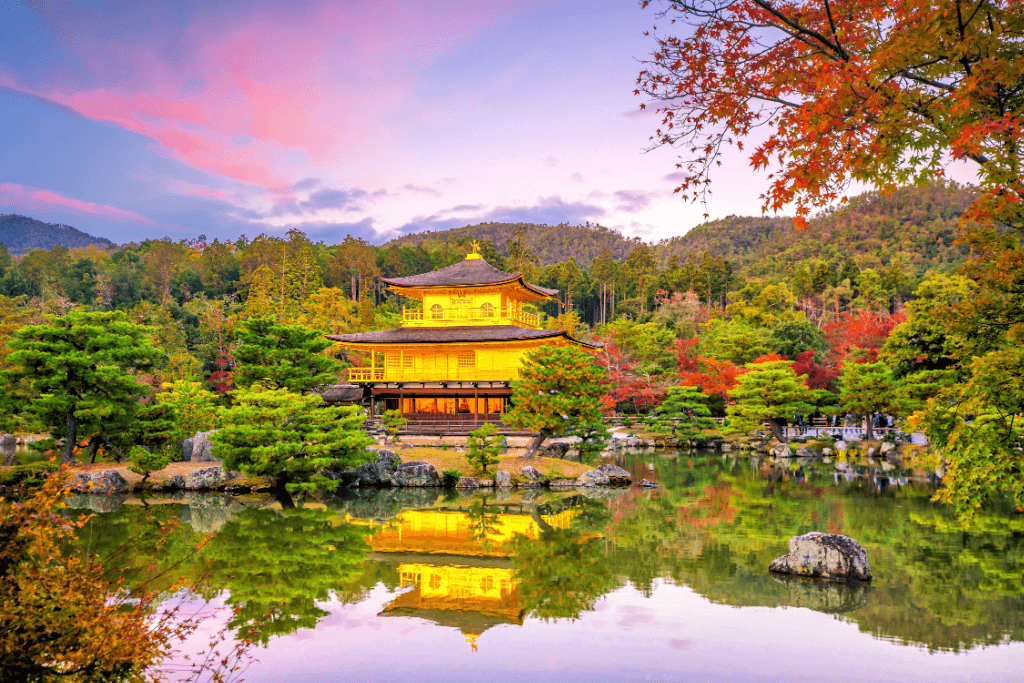
Kyoto temples, with their timeless elegance and deep-rooted spirituality, beckon travelers to immerse themselves in a world where the past and the present coexist harmoniously. These magnificent sanctuaries, scattered throughout Kyoto’s picturesque landscape, offer a glimpse into Japan’s rich cultural heritage. They provide an enriching and transformative experience for all who venture within their hallowed grounds.
What is a temple?
A temple, often called a shrine, is a special place of worship in the Buddhist and Shinto religions. Shintoism is all about kami, like spirits or gods connected to nature, ancestors, and essential parts of Japanese life. Moreover, these temples have a unique look with an entrance gate called a torii, a main hall called a honden, and other traditional buildings made of wood without nails.
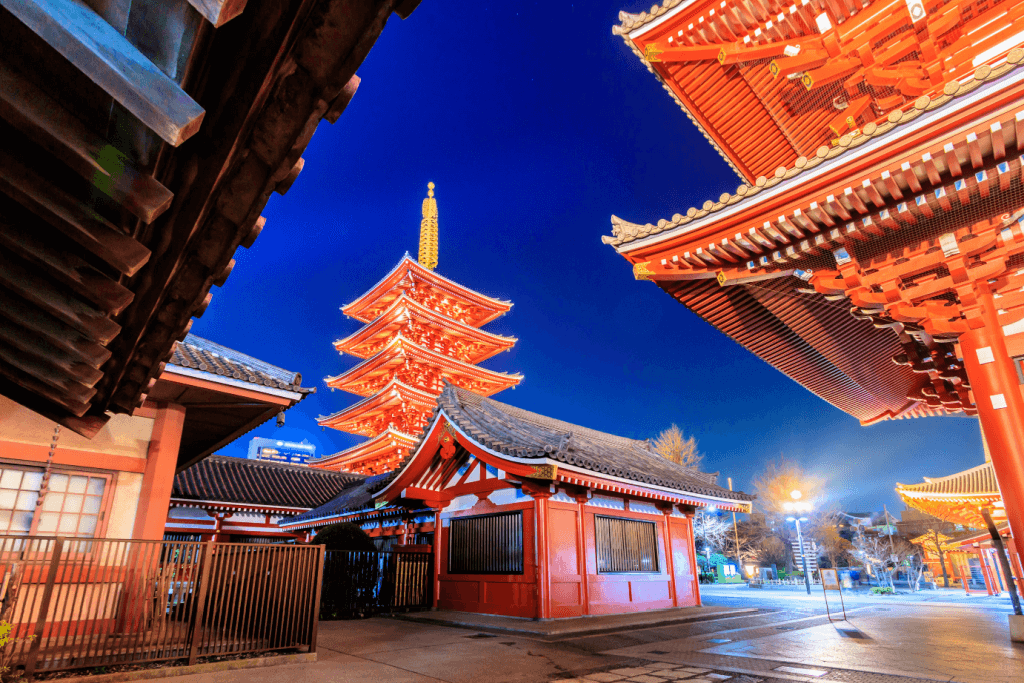
People go to Shinto temples for ceremonies led by priests and shrine maidens, known as miko. They do these ceremonies to show respect to kami and ask for their blessings. The temples also have festivals with parades and cultural activities. Visitors often bring offerings like money, food, or special items to show gratitude or ask for help. Before entering the main hall, visitors clean themselves at a stone basin called chozuya and show respect by bowing and clapping during the ceremonies.
These temples come in different sizes and levels of importance, from small local ones to big pilgrimage spots. They are a significant part of Japanese culture, helping people connect with their history, find spiritual guidance, and participate in traditional rituals. Moreover, some of these temples are also considered national treasures. If you’re visiting Kyoto, we recommend checking out these three temples.
Kiyomizu-dera
Kiyomizu-dera is a beautiful Buddhist temple in Kyoto, Japan, surrounded by scenic hills. It has a deep connection to Japan’s culture and spirituality, going back to the year 780 when it was first built near the enchanting Otowa Waterfall. In the beginning, it followed the Hosso sect of Buddhism. What makes it special is its unique wooden stage that sticks out from the main hall and looks like it’s floating in the air – a view that will leave you amazed.
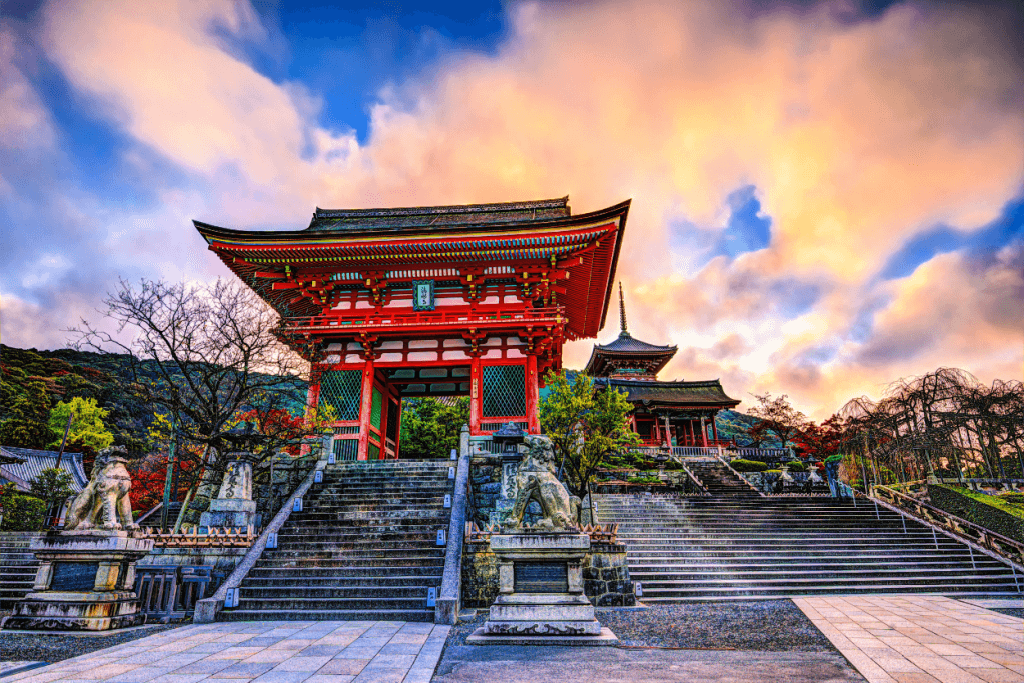
But Kiyomizu-dera isn’t just about its fantastic architecture. It’s also lively, with many cultural events happening year-round. People flock to see cherry blossoms in spring and the colorful leaves in the fall. With a history spanning over a thousand years, this temple shows how Buddhism and Shintoism, another Japanese religion, have intertwined. It’s so vital that it’s even on the UNESCO World Heritage list, which means it’s recognized as a valuable treasure for people worldwide to appreciate.
Are you looking for some delicious snacks to enjoy this autumn? Check out Sakuraco! Sakuraco delivers traditional Japanese snacks, teas, sweets, and snacks from local Japanese makers directly to your door so you can enjoy the latest treats directly from Japan!
Tofuku-ji
Tofuku-ji is a beautiful Zen Buddhist temple located in Kyoto, Japan. It stands as a symbol of Japan’s rich culture and spiritual beliefs. This temple was founded in 1236 and has since become a place of peace and reflection. One of its main attractions is the well-kept gardens that change with the seasons. People come from all over to see the stunning cherry blossoms in spring and the colorful leaves in the fall. The temple is a beautiful example of Zen architecture, known for its simple and elegant design.
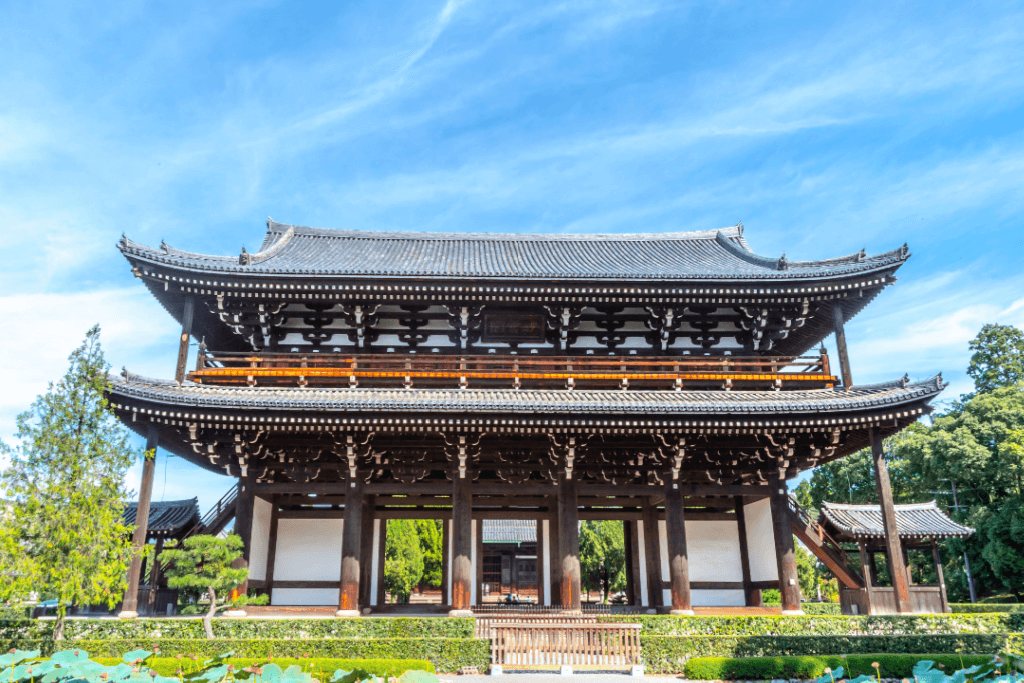
Tofuku-ji holds a special place as the head temple of the Tofuku-ji school within the Rinzai Zen Buddhist sect. It has a long history and profound spiritual importance. When you visit, you can immerse yourself in Zen Buddhism and enjoy the beautiful harmony of nature, architecture, and spirituality that is a core part of Japanese culture.
Daigo-ji
Daigo-ji is an impressive Buddhist temple in Kyoto, Japan. This temple has existed since the early 9th century, showing Japan’s long-standing commitment to peace and devotion. Its beautiful Japanese gardens that change with the seasons make it unique. Usually, people come here to see vibrant fall leaves, making it a must-visit for nature lovers. Overall, the temple has stunning Buddhist architecture, known for its timeless beauty and careful design.
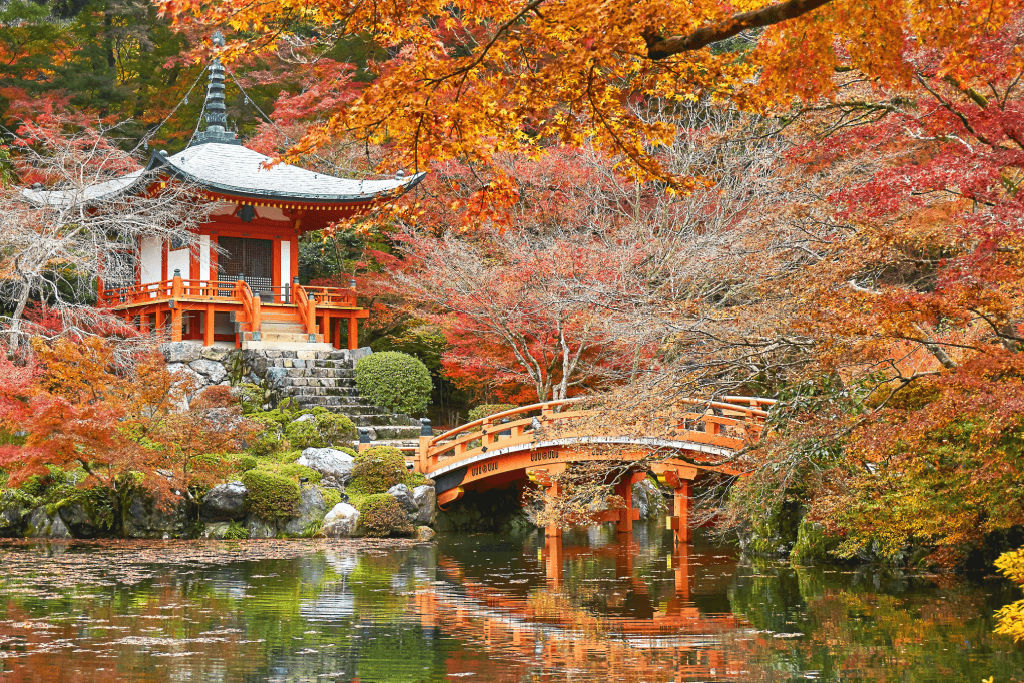
Because it’s the main temple of the Shingon sect of Buddhism, Daigo-ji has a significant historical and spiritual role. It’s also where people share and cherish Buddhist teachings, inviting pilgrims and visitors worldwide. Being a UNESCO World Heritage Site adds to its importance, making it a respected treasure for both culture and religion. Everyone is welcome to explore the world of Buddhism and enjoy the peaceful blend of nature and spirituality in this extraordinary place.
Why should I visit Kyoto temples?
Visiting Kyoto’s temples is fantastic because they offer a captivating journey into Japan’s culture, history, and spirituality. Generally, people call Kyoto the “City of Ten Thousand Shrines and Temples,” it’s home to many centuries-old temples that have seen Japan’s history unfold. These temples come in various architectural styles, from the grand Kinkaku-ji’s golden pavilion to the simple beauty of Ryoan-ji’s rock garden. As a result, they all showcase the incredible artistry of traditional Japanese design.
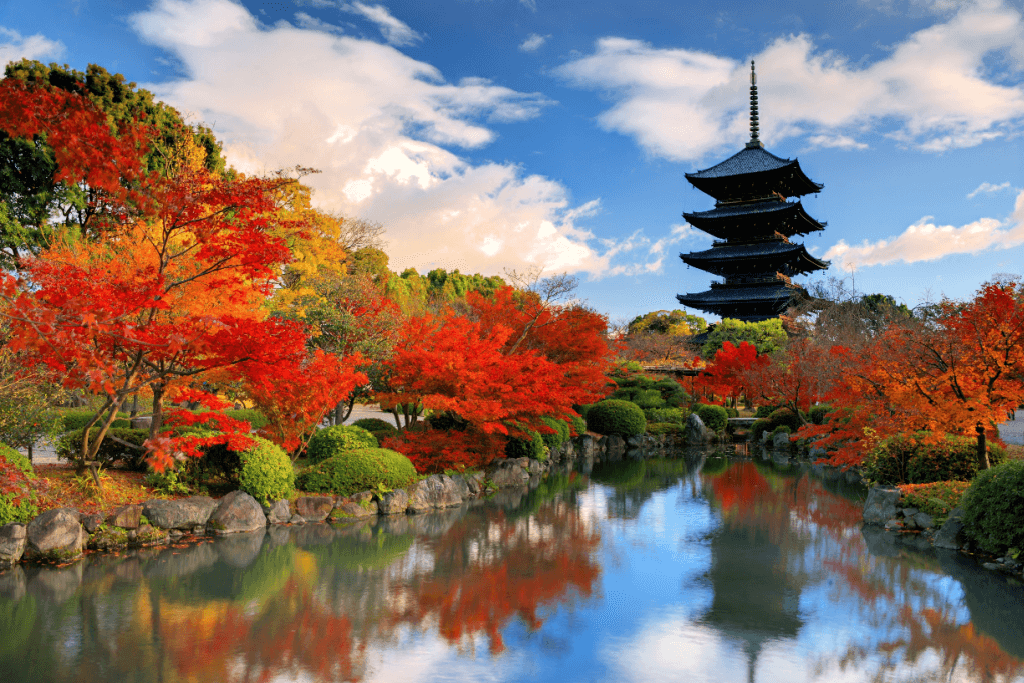
When you visit Kyoto’s temples, you can witness special rituals and ceremonies that are deeply meaningful to the locals. Whether planning a trip to Kyoto or just curious about Japan’s rich heritage, exploring these temples is an opportunity you won’t miss. Feel free to share your thoughts on the fascinating world of Kyoto’s temples in the comments below.

Discover authentic flavors with Sakuraco
Get Sakuraco 

Discover authentic flavors with Sakuraco
Get Sakuraco 
Related Articles

Ancient Japan Astronomy: What Makes it Unique?
Ancient Japan astronomy provides a deep dive into the country’s rich history. Revealing how the stars, seasons, and stories have shaped its cultural heritage.
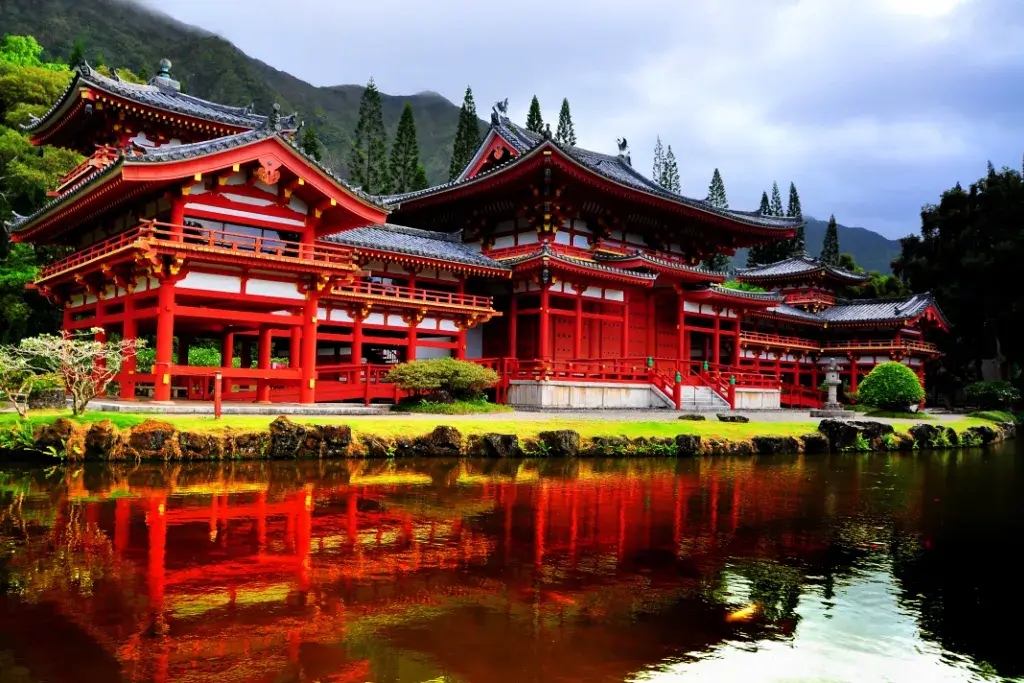
Capital of Japan: Amazing Historic Locations!
Did you know Japan has had several capital cities throughout the centuries? Historically, Japan’s capital city has changed around several times.

Golden Week 2019: Why Was It Special?
2019 Golden Week was extra special as Japan celebrated the Imperial succession and the start of a new era.

Female Warriors: The Amazing Onna-Musha of Japan
The onna-musha, were female warriors famous for their martial prowess, and many people respected them for their bravery and courage in battle.



